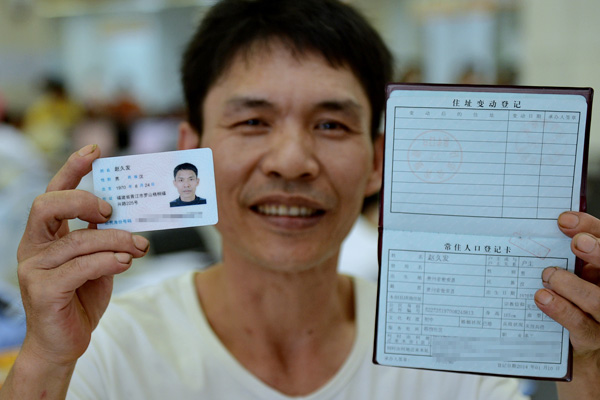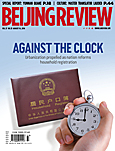| Changing an Outdated Policy | | The Chinese Government has decided to replace the existing household registration—known as hukou—system that separates urban and rural residents with a country-wide registration system | | more | | |
 | | Ending Urban-Rural Dichotomy | | One objective of this round of household registration reform is to help around 100 million migrant workers and other rural residents to settle in towns and cities by 2020, allowing them to enjoy public services on par with city residents. Another objective is to set up a more efficient household registration system, according to Huang Ming, Vice Minister of Ministry of Public Security. | | Full Story | |
|
|
|
| Timeline of Hukou System in China | 1958 The Standing Committee of the National People's Congress adopted Household Registration Regulations, which strictly restricted migration from rural to urban areas and between urban areas.
September 1985 The Standing Committee of the National People's Congress promulgated the Residents Identification Card Regulation. Identification cards were issued to both rural and urban residents.
October 1, 2001 Household registration reform was launched in more than 20,000 towns and small cities. Migrants with fixed domicile and legal income could apply for urban hukou.
November 2013 The Third Plenary Session of the 18th National Congress of the Communist Party of China decided to accelerate reform on the household registration system.
July 30, 2014 The State Council published the Opinions on Further Promotion of the Reform of Household Registration System, under which urban and rural residents should no longer be distinguished from one another.
(Source: The Beijing News) | | |
|
